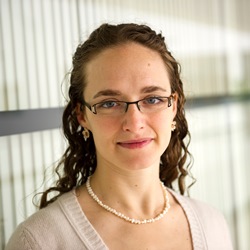
About
Rebecca Saxe is the John W. Jarve (1978) Professor of Cognitive Neuroscience and the Associate Dean of Science at MIT. She studies the development and neural basis of human cognition, focusing on social cognition. Saxe obtained her Ph.D. from MIT and was a Harvard Junior Fellow before joining the MIT faculty in 2006. She has received the Troland Award from the National Academy of Sciences, a Guggenheim fellowship, the MIT Committed to Caring Award for graduate mentorship and is a member of American Academy of Arts and Science.
Research
Research in the SaxeLab is motivated by big questions: How does the human brain — an electrical and biological machine — construct abstract thoughts? What aspects of our brains and minds are universal, shared by all humans, and how much is specific to a culture, or unique to an individual?
We often ask these questions about social cognition: how people think about people. We ask: how do people figure out what someone else knows, wants, or feels? How do they use that information to communicate or teach, to make moral judgements, or to exacerbate or repair conflicts? What brain regions are involved, and what specifically are they doing? How does this system work in adults, in children, and even in infants? How can computational models capture human observers’ sophisticated inferences about other people?
Teaching
9.401 Tools for Robust Science
Publications
Kosakowski, H. L., Cohen, M. A., Herrera, L., Nichoson, I., Kanwisher, N., & Saxe, R. (2024). Cortical face-selective responses emerge early in human infancy. eneuro, 11(7).
Houlihan, S. D., Kleiman-Weiner, M., Hewitt, L. B., Tenenbaum, J. B., & Saxe, R. (2023). Emotion prediction as computation over a generative theory of mind. Philosophical Transactions of the Royal Society A, 381(2251), 20220047.
Saxe, R. (2022). Perceiving and pursuing legitimate power. Trends in Cognitive Sciences, 26(12), 1062-1063.
Ho, M. K., Saxe, R., & Cushman, F. (2022). Planning with theory of mind. Trends in Cognitive Sciences, 26(11), 959-971.
Thomas, A. J., Woo, B., Nettle, D., Spelke, E., & Saxe, R. (2022). Early concepts of intimacy: Young humans use saliva sharing to infer close relationships. Science, 375(6578), 311-315

